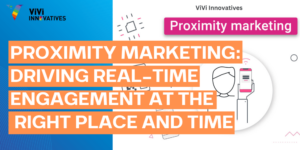Advertising has historically been a way for advertisers to position a product or service as the star of an ad and deliver a message to as many people as possible. Technological advances in the past 50 years have empowered consumers and completely changed the way we live, shop and consume content. It changed how social media is used, and how ads are perceived at mind-boggling speed. Today, ads have a two-way relationship with their audience, empowering consumers to use their purchasing power and voices to both buy into brands and challenge those acting irresponsibly. The focus of ads has moved from product and services to putting people at the heart of a campaign.
GenZ, defined as those born between 1995 and 2010, grew up connected 24/7. Real life and virtual life are fluidly connected without a distinction between them. Relationships are built online and in real life. For this generation, social media fulfills a variety of needs and use cases, but not always with a specific purpose. Living a mixed reality allows for a fluid expression of multiple versions of their identities that mirror different aspects of their personalities.
In contrast, Baby Boomers, defined as those born between 1946 and 1964, grew up without the internet and experienced its evolution. There is a distinct compartmentalization of real life and virtual life. Relationships are built in real life and extended into the online world. Social media is used with a specific purpose and to reconnect with real life relations. This generation has a single identity that is represented on social media and is a more or less accurate reflection of themselves in real life.
These different backgrounds fundamentally affect how both generations experience social media and value advertising on social media. While GenZ considers data usage for ads to be normal, Baby Boomers remember an ad-free internet and are more suspicious. Rather than a cultural shift towards greater privacy concerns among consumers, our research found that there are generational nuances to data tolerance in these markets that informs attitudes about privacy. For GenZ, consenting to data use is the ‘new normal’ and navigating the online world is the norm. For Baby Boomers, privacy concerns have always been present but online data collection and use is a new concept.
Shared between them is the notion of consent and the collective understanding of an ‘algorithm’ which creates high expectations for personalized content.
Consumers have a generally positive to neutral attitude towards ads on social media based on our study and others. 42% of consumers interviewed agree that advertising has the power to make the world a better place. 1
As long as the ads they see are relevant, consumers feel validated in their understanding of the ‘algorithm’ and are more likely to interact with the ads they find valuable.
Personalization allows consumers to feel seen, heard and understood by a brand, which has the long lasting positive effect of building trust.





